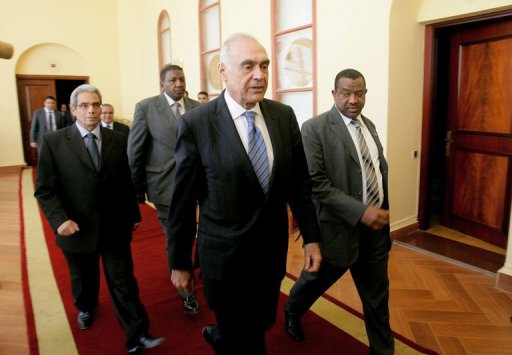The saying goes that it is difficult to prophesy, especially about the future. But let us try. There is no doubt: the Israeli-Palestinian peace process is stalled, and all of US President Barack Obama s charisma – and US power – have until now failed to revive it. Stalemates usually encourage doomsayers who predict dour alternatives: war, violence, another intifada, perhaps a nuclear holocaust.
None of this seems likely.
Let us look at three areas: Israel-Palestine, Israel-Syria and Iran. Beginning with Israel-Palestine, one hears Palestinian leaders saying that if there is no visible progress in negotiations with Israel, another intifada may break out. One can well understand their frustration, and threatening an intifada may be politically astute. Yet previous intifadas, while originating in spontaneous outbursts against occupation, were ultimately sustained by the support – political, moral and material – of the Palestinian Authority. This is not going to happen again: this time, a descent into violence may mean the disintegration of the PA, accompanied by a strengthening of Hamas. The PA leadership is not going to commit political suicide: it will try to cling to power.
As for Hamas, judging from its behavior since the war last winter, it is not interested in another violent confrontation with Israel. It is rightly proud of having been able to survive Israel s onslaught a year ago, but it does not wish again to bring suffering and devastation upon the population under its control. What Hamas is interested in is to maintain, consolidate and legitimate its rule in Gaza, and the longer this de facto control lasts, the more everyone gets used to it. Similarly, Israel is interested in maintaining the tenuous status quo along the Gaza frontier.
Turning to Israel-Syria, negotiations may resume but even if they do the gaps between the two sides positions are too deep to be easily overcome. Yet even if the present stalemate continues, I do not see Syria resorting to a violent challenge to the present status quo, despite President Bashar Assad s threats to the contrary. Syria is aware of its military inferiority vis-a-vis Israel, and while it will continue to support Hezbollah and Hamas, Syria is interested – as in the past – in stability. It would like to see the new government in Lebanon consolidate its power, while Hezbollah – Sheikh Hassan Nasrallah s fiery rhetoric notwithstanding – does not look forward to another war with Israel.
Finally, Iran. Obama s politics of engagement with Iran has failed. It is now obvious that Tehran is not going to accommodate even the most minimal demands made by the international community. This may lead to a tightening of sanctions and escalate the pressure for military action.
But in all probability, neither the US nor Israel is going to attack Iran. With the new surge in Afghanistan and the still unfinished business in Iraq, the Obama administration is not going to start a third war. Israel, on the other hand, for all the tough talk of some of its leaders, is not in a military or diplomatic position to attack Iran on its own. A lot of saber rattling may occur–but no military action.
Yet something may still happen concerning Iran – internally. The massive protests that followed the fraudulent presidential elections last June have dramatically changed the Iranian political discourse. The tens of thousands of young protesters have shown that there are deep cracks in the legitimacy of President Mahmoud Ahmedinejad s regime. The Islamic Republic has always claimed that it rested on two pillars, theocratic and democratic, and for all the limits it placed on a truly democratic environment, the fact that contested presidential and parliamentary elections did take place gave at least a semblance of credibility to this claim.
This has now been shattered. The massive protests against Ahmedinejad – and implicitly against the Supreme Leader – were not necessarily led by secular, western-oriented liberals, but rather by people brought up in the belief that the Islamic Republic represents them and listens to their voice. They do not challenge the legitimacy of the Islamic Republic as such; they challenge the fraudulent and repressive way it is being ruled. Many protestors are also aware that Ahmedinejad s gutter language (denial of the Holocaust, threats to wipe Israel off the map) has hurt the country s standing in the world. For them, Ahmedinejad s thuggishness represents not the ideals of the Islamic Revolution but its perversion. In this they are similar to 1970s communist bloc dissidents challenging their regimes not because they believed in capitalism and western-style democracy, but because they felt that the Kremlin gerontocracy represented a denial of the emancipatory ideals of Marxism.
Sanctions on Iran, even if implemented, will not change the mind of the current Iranian leadership, but may impact internal developments in the country. Iran s vibrant civil society, now highly motivated and more mobilized than ever, may bring about internal change. This may be violent or partially negotiated, and it will not institute a western-style democracy in Tehran. But internal change in Iran could revolutionize Middle East politics. After all, what are called revolutions in the Arab world have been nothing but military coups, while Iran did go through a genuine popular revolution that brought down the Shah. It may happen again.
Shlomo Avineri is professor of political science at the Hebrew University of Jerusalem and former director-general of Israel s Ministry of Foreign Affairs. Among his many books are The Social and Political Thought of Karl Marx and The Making of Modern Zionism . This commentary is published by DAILY NEWS EGYPT in collaboration with bitterlemons-international.org.

